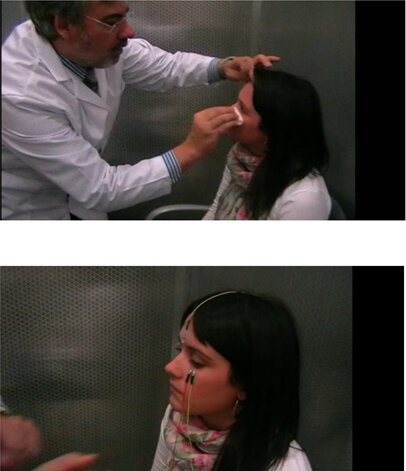The brain recognizes the emotional content of 'Emojis'
"It is the first study that values the emotional content of Emoji using psychophysiological measures"
The pictograms we usually use in email or telephone messages, known as Emoticons (Emoji in English), are perceived by the brain in a way similar to real-life photo and, therefore, have the same emotional impact. This is confirmed by a research of the research group on Neurocognition, Psychobiology of the Personality and Behavioral Genetics of the Institute of Biomedical Research of Lleida (IRBLleida) and the University of Lleida (UdL), led by the Professor of Personality and Psychopathology of UdL, Anton Aluja.
"It is the first study that values emotional content of Emoji using psychophysiological measures," according to the coordinator, Anton Aluja. The research has been published in the prestigious Psychological Research magazine.
The emotional impact is evaluated through the reflex of fright (Startle reflex) measured with two electrodes that are placed under an eye, in contact with the orbicular (musculus orbicularis oculi). When the person receives an acoustic stimulus of 105 decibels of a certain intensity, this muscle is contracted very quickly, in only 50 milliseconds. Many brain structures such as the tonsil, the hippocampus or the circumvolución of the callous body, which are included in the limbic system, related to emotions, are involved in this reflex of scare.
The research group in Neurocognition, Psychobiology of Personality and Behavioral Genetics has conducted tests with 190 volunteers (144 women and 46 men) to evaluate the recognition of thirty faces of Emojis, as is done with photos of human faces or the weighted images of the international standardized IAPS system. Thus they have confirmed that the brain recognizes the pleasant and unpleasant emotions that Emojis wants to play.
Then, the researchers have done electromyographic records to a smaller group, of 53 volunteers, to see the response of the acoustic reflection of surprise. The research group has shown that the vision of affective Emoji emotional expressions modulates this automatic response, just like real images. "If before the acoustic stimulus the individual contemplates a pleasant image, the muscle is contracted less than if the image is unpleasant, that it contract more. Therefore, it is possible to involuntarily and objectively evaluate the emotional impact on the brain ", explained Dr. Aluja.
The UdL professor proposes future research on the emotional content of Emojis using other emotions of different colors associated with emotional content or by studying other peripheral indicators such as electrodermic activity or heart rate.
MORE INFORMATION:
Article Startle reflex modulation by affective face "Emoji" pictographs







